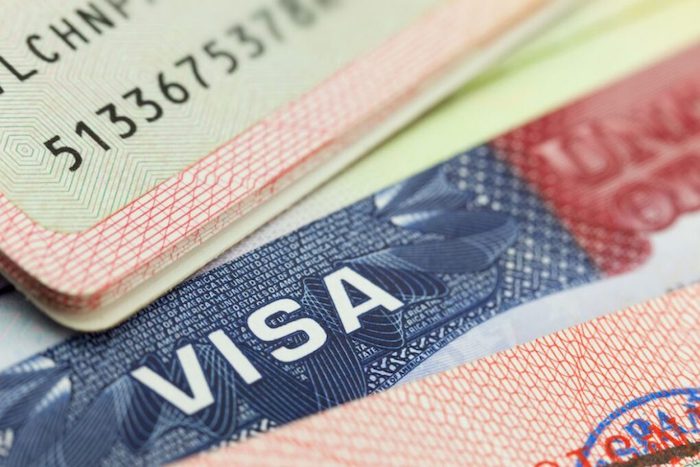World
US Proposes $15,000 Visa Bond for Visitors from High-Risk Nations

The US State Department is set to launch a controversial pilot program requiring a visa bond of up to $15,000 for certain foreign visitors. This initiative aims to reduce the number of visa overstays but has drawn criticism for potentially making travel to the United States prohibitively expensive for many individuals.
According to a notice scheduled to be published on October 3, 2023, in the Federal Register, the program will focus on applicants for business and tourist (B-1/B-2) visas from countries identified as having high overstay rates or inadequate internal security and screening systems. The bond amounts will vary, with options set at $5,000, $10,000, or $15,000. The State Department stated that this measure is intended to “ensure that the US government is not financially liable if a visitor does not comply with the terms of his or her visa.”
Details of the Pilot Program
This visa bond requirement is part of a broader strategy by the Trump administration to tighten immigration and visa policies. Just last week, the State Department implemented stricter rules that mandate additional in-person interviews for many visa renewals. Additionally, new passport requirements for entrants into the Diversity Visa Lottery were proposed.
The preliminary notice, available on the Federal Register’s website, outlines the criteria for participation in the bond program. It states, “Aliens applying for visas as temporary visitors for business or pleasure who are nationals of countries identified by the department as having high visa overstay rates…may be subject to the pilot program.” The list of countries affected will be made public once the program takes effect, which will occur 15 days after formal publication. Importantly, the proposed bond will not apply to nationals from countries participating in the US Visa Waiver Program and may be waived on a case-by-case basis depending on individual circumstances.
Reactions to the Proposal
Visa bonds have been discussed in the past but have never been implemented due to logistical concerns and public perception challenges. The State Department acknowledged these past objections but asserted that they are now outdated. “That prior view is not supported by any recent examples or evidence, as visa bonds have not generally been required in any recent period,” the notice explained.
Critics of the bond proposal argue that it could deter travel, complicate the visa application process, and convey a message that the US is becoming increasingly closed off. They are concerned that the financial burden could disproportionately affect individuals from developing countries, effectively limiting their ability to visit the United States.
Conversely, supporters of the policy contend that it could create financial incentives for visitors to adhere to immigration rules and address longstanding concerns about visa overstays, particularly from nations with historically high rates of noncompliance. Advocates suggest that such measures are necessary to maintain the integrity of the US immigration system.
As the proposal moves forward, the implications for international travel and US relations with affected countries remain to be seen. The program’s outcomes will likely influence future immigration policies and the perception of the United States as a destination for tourism and business.
-

 Health3 months ago
Health3 months agoNeurologist Warns Excessive Use of Supplements Can Harm Brain
-

 Health4 months ago
Health4 months agoFiona Phillips’ Husband Shares Heartfelt Update on Her Alzheimer’s Journey
-

 Science2 months ago
Science2 months agoBrian Cox Addresses Claims of Alien Probe in 3I/ATLAS Discovery
-

 Science2 months ago
Science2 months agoNASA Investigates Unusual Comet 3I/ATLAS; New Findings Emerge
-

 Science2 months ago
Science2 months agoScientists Examine 3I/ATLAS: Alien Artifact or Cosmic Oddity?
-

 Entertainment2 months ago
Entertainment2 months agoLewis Cope Addresses Accusations of Dance Training Advantage
-

 Entertainment5 months ago
Entertainment5 months agoKerry Katona Discusses Future Baby Plans and Brian McFadden’s Wedding
-

 Science2 months ago
Science2 months agoNASA Investigates Speedy Object 3I/ATLAS, Sparking Speculation
-

 Entertainment5 months ago
Entertainment5 months agoEmmerdale Faces Tension as Dylan and April’s Lives Hang in the Balance
-

 World3 months ago
World3 months agoCole Palmer’s Cryptic Message to Kobbie Mainoo Following Loan Talks
-

 World4 weeks ago
World4 weeks agoBailey and Rebecca Announce Heartbreaking Split After MAFS Reunion
-

 Science2 months ago
Science2 months agoNASA Scientists Explore Origins of 3I/ATLAS, a Fast-Moving Visitor









